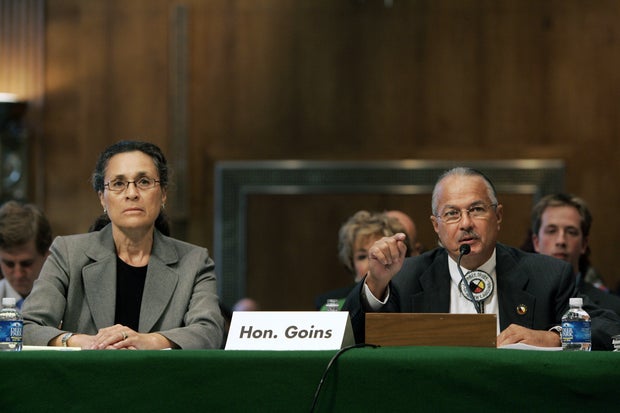CBS News
Do seniors need home warranties?

Getty Images
For many American seniors and older adults, every financial decision needs to be carefully weighed against cost and benefit. With millions heavily dependent on Social Security and limited retirement savings, a wrong purchase or bad investment could be detrimental for their financial health. That’s why it’s critical to carefully weigh the pros and cons of any new service or product before buying in.
Home warranties, for example, which help cover the cost of repairs (and possible replacements) of a wide variety of home appliances, are worth exploring right now. With the price of a home warranty often less than $100 per month, the service can pay for itself in just a few visits from an experienced technician. But are they worth buying for seniors? Or is it more cost-effective to wait for an emergency to arise? That’s what we will break down below.
Start by getting a free instant home warranty price quote here today.
Do seniors need home warranties?
Here are four reasons why seniors may want to consider a home warranty plan now:
Your budget may be limited
Unless you were able to save a substantial amount of money during your working years or have no bills to pay each month, your budget is likely limited with little room left for experimentation. And with a looming cut to Social Security and retirement savings that will only last so long, it makes sense to lock in the protection a home warranty can provide.
Simply ask yourself if you could afford to pay hundreds or possibly thousands of dollars to fix or replace an aging or broken appliance right now. If the only way you could do so is by swiping your credit card (which comes with double-digit interest rates right now), then you’re likely better served by buying a home warranty.
Enter your zip code to find a home warranty plan that works for you here.
Your ability to complete repairs is limited
As you age, your ability to make repairs and replace broken items and appliances will wane. And with appliance technology constantly evolving, it can be hard to keep informed on what’s needed and what isn’t. But if you lock in a home warranty plan now you won’t have to worry about fixing a broken dishwasher or hauling out an old, broken-down refrigerator. A licensed technician can make these repairs and replacements for you, allowing you to focus on more important items in your golden years.
Costs are already high
You don’t have to pay close attention to the news to know that costs for many common items are already high. Inflation hit its highest point in decades in June 2022 and although it’s dropped significantly since, it’s been rising again in the opening months of 2024. Combined with higher interest rates that have made the cost of borrowing surge, you may simply not have enough leftover to cover major repairs and appliance replacements in today’s economy.
Peace of mind is priceless
As trite as it may sound, you truly can’t put a price tag on peace of mind. And that is arguably the best value a home warranty plan can provide. By knowing you have the protection for your appliances and home in place, you can rest easy knowing that any future repairs won’t debilitate your finances.
You won’t have to worry about the quality of the service, either, as home warranty providers will serve you with experienced and knowledgeable technicians who can quickly diagnose issues and fix them, often on the same day. This peace of mind, while desirable at a younger age, is vital for seniors. So don’t let the opportunity to secure it pass by.
Learn more about your home warranty options online today.
The bottom line
Although seniors should be judicious with how they spend their money and what they spend it on, there’s a compelling argument for buying a home warranty plan now. With limitations in budget and the ability to make repairs on your own, a home warranty could help bridge both gaps. And with everyday costs already high thanks to inflation and elevated interest rates, the peace of mind a home warranty can provide is particularly attractive right now. Just be sure to shop around to find the best combination of protection and cost for your unique circumstances.
CBS News
Taylor Swift’s Eras Tour book hits stores Friday. Here’s what to know.

Taylor Swift’s latest release isn’t a new song or album — it’s a book hitting store shelves on Black Friday that commemorates the pop star’s record-setting “Eras Tour.”
The volume chronicles Swift’s wildly successful series of concerts, which concludes in December and which last year became the first music tour to gross over $1 billion.
A movie version of the concert she performed on her Eras Tour also shattered box office records. It earned an estimated $96 million domestically over its opening weekend, making it the most successful concert film of all time, according to Comscore.
Where can I buy the book?
The new keepsake, titled “Taylor Swift | The Eras Tour Book,” is available only at Target. It hits the retailer’s stores on Friday, while it will become available for sale on Target’s website on Saturday. Swift self-published the book under Taylor Swift Publications.
Emma McIntyre/TAS24/Getty Images for TAS Rights Management
Target first teased the book launch in an Instagram post on Oct. 15. Swift herself also promoted the book in an Instagram post that garnered more than 3.6 million likes.
What’s in The Eras Tour book?
The 256-page hardcover title, which costs $39.99, includes unreleased photographs of Swift in concert from every period in her meteoric career, according to Target.
The book also documents the production of Swift’s epic Eras Tour, which kicked off in August 2023, including “personal reflections” written by the artist herself.
In tandem with the book release, Target is also exclusively launching “The Tortured Poets Department: The Anthology” album as both a vinyl record and CD. The recording feature 35 tracks, including four acoustic versions of the following songs: “Fortnight,” “Down Bad,” “But Daddy I Love Him” and “Guilty as Sin?”
Two million copies of the book have been printed, the Wall Street Journal reported, citing a person familiar with the matter. Assuming the initial print run sells out, it would generate nearly $80 million in sales. Forbes puts Swift’s net at worth $1. 6 billion, including $600 million from music royalties and touring, a music catalog valued at an estimated $600 million, and $125 million in real estate.
Swift alone could be a forceful enough economic engine to boost Target. The retailer’s latest sales and profit figures fell short of analysts’ expectations, while Target lowered its earnings forecast for the current quarter. Analysts say that inflation-weary consumers are after deeper discounts than the retailer can offer, or simply aren’t making as many discretionary purchases.
“Consumers tell us their budgets remain stretched, and they are shopping carefully,” Target CEO Brian Cornell said in a Nov. 20 earnings call.
That restraint seems unlikely to deter the Swifties, the singer’s rabid fans, as she prepares to wind up the Eras Tour in Vancouver on Dec. 8.
CBS News
Taylor Swift’s Eras Tour book hits stores Friday. Here’s what to know.

Taylor Swift’s latest release isn’t a new song or album — it’s a book hitting store shelves on Black Friday that commemorates the pop star’s record-setting “Eras Tour.”
The volume chronicles Swift’s wildly successful series of concerts, which concludes in December and which last year became the first music tour to gross over $1 billion.
A movie version of the concert she performed on her Eras Tour also shattered box office records. It earned an estimated $96 million domestically over its opening weekend, making it the most successful concert film of all time, according to Comscore.
Where can I buy the book?
The new keepsake, titled “Taylor Swift | The Eras Tour Book,” is available only at Target. It hits the retailer’s stores on Friday, while it will become available for sale on Target’s website on Saturday. Swift self-published the book under Taylor Swift Publications.
Emma McIntyre/TAS24/Getty Images for TAS Rights Management
Target first teased the book launch in an Instagram post on Oct. 15. Swift herself also promoted the book in an Instagram post that garnered more than 3.6 million likes.
What’s in The Eras Tour book?
The 256-page hardcover title, which costs $39.99, includes unreleased photographs of Swift in concert from every period in her meteoric career, according to Target.
The book also documents the production of Swift’s epic Eras Tour, which kicked off in August 2023, including “personal reflections” written by the artist herself.
In tandem with the book release, Target is also exclusively launching “The Tortured Poets Department: The Anthology” album as both a vinyl record and CD. The recording feature 35 tracks, including four acoustic versions of the following songs: “Fortnight,” “Down Bad,” “But Daddy I Love Him” and “Guilty as Sin?”
Two million copies of the book have been printed, the Wall Street Journal reported, citing a person familiar with the matter. Assuming the initial print run sells out, it would generate nearly $80 million in sales. Forbes puts Swift’s net at worth $1. 6 billion, including $600 million from music royalties and touring, a music catalog valued at an estimated $600 million, and $125 million in real estate.
Swift alone could be a forceful enough economic engine to boost Target. The retailer’s latest sales and profit figures fell short of analysts’ expectations, while Target lowered its earnings forecast for the current quarter. Analysts say that inflation-weary consumers are after deeper discounts than the retailer can offer, or simply aren’t making as many discretionary purchases.
“Consumers tell us their budgets remain stretched, and they are shopping carefully,” Target CEO Brian Cornell said in a Nov. 20 earnings call.
That restraint seems unlikely to deter the Swifties, the singer’s rabid fans, as she prepares to wind up the Eras Tour in Vancouver on Dec. 8.
CBS News
A look at Trump’s campaign promise to recognize North Carolina’s Lumbee Tribe

When Kamala Harris and Donald Trump campaigned in North Carolina, both candidates courted a state-recognized tribe there whose 55,000 members could have helped tip the battleground state.
Trump in September promised that he would sign legislation to grant federal recognition to the Lumbee Tribe, a distinction that would unlock access to federal funds. He ultimately won North Carolina by more than 3 points, in part due to continued support from Lumbee voters.
Now, as Trump prepares to return to the White House in January, the promise will be put to the test. He has Republican allies in Congress on the issue, and now the Lumbee, as well as tribal nations across the country, are watching closely to see what comes next.
Tribal nations typically receive federal recognition through an application with the Department of the Interior, but the Lumbee have been trying for many years to circumvent that process by going through Congress. Chairman John Lowery called Interior’s application process “flawed” and overly lengthy and said it should be up to Congress to right what he calls a historic wrong.
“It’s just crazy that we’re sitting here fighting this battle, and I have to tell you that I am real in 2024,” Lowery said.
Following the presidential election, the Lumbee hope there will be momentum behind their cause, but they face deep-rooted opposition from tribal nations across the country.
There are questions about Trump’s next move
Several tribes, including the only one that is federally recognized in North Carolina, argue that if the Lumbee Tribe wants federal acknowledgment, it should go through the formal process in the Department of the Interior. One person familiar with Trump’s thinking said the president-elect will require the Lumbee Tribe to do just that, and he won’t sign a Lumbee recognition bill. The person requested anonymity because they were not authorized to publicly speak about Trump’s views.
Trump’s spokeswoman, Karoline Leavitt, said “no policy should be deemed official unless it comes directly from President Trump.”
Federal recognition is of enormous importance, as it comes with access to resources like healthcare through Indian Health Services and the ability to create a land base such as reservations through the land-to-trust process. But before that happens, a tribal nation has to file a successful application with the Office of Federal Acknowledgement, a department within the Interior.
GERALD HERBERT / AP
The Lumbee Tribe has applied for federal recognition, but that petition was denied in 1985 because it “could not establish the group’s descendency either culturally, politically, or genealogically from any tribe which existed historically in the area.”
In 2016, the Interior reversed a decision barring the Lumbee Tribe from reapplying, but the Lumbee have opted for the congressional route.
Gaining federal recognition through legislation is a rare but not unheard of path. But the Lumbee’s approach has stoked a simmering debate in both Indian Country and Congress about Indigenous identity and tribal nationhood.
The Lumbee have received support from members of both parties
Members of Congress from both parties have supported recognizing the Lumbee through legislation, including Oklahoma Republican Sen. Markwayne Mullin, a member of the Cherokee Nation who campaigned for Trump in North Carolina and backed the legislation.
But perhaps the state-recognized tribe’s most ardent ally in Congress is North Carolina Republican Sen. Thom Tillis, who is up for reelection in 2026.
Tillis introduced the Lumbee Fairness Act last year and has been a vocal supporter of the Lumbee. In interviews with The Associated Press, several tribal leaders, lobbyists, and advocates said they were told by Tillis directly or by his staff that the senator is currently and will continue to block certain bills backed by tribal nations unless the leaders of those tribes support the Lumbee.
One of the bills he’s promised to block, according to those interviewed by the AP, is a land transfer that would allow the Tennessee Valley Authority to return 70 acres of land to the Eastern Band of Cherokee Indians, the only federally recognized tribal nation in Tillis’s state. It would allow the tribe to put the land in Monroe County, Tennessee into trust. The plot is part of the tribal nation’s homelands and contains the birthplace of Sequoyah.
“It’s appalling to me. It’s disgraceful,” Principal Chief of the Eastern Band of Cherokee Indians Michell Hicks said. He said that Tillis told him earlier this year that he would stop any legislation dealing with the Eastern Band unless Hicks pledged his support.
Hicks is among the tribal leaders who question the validity of the Lumbee’s historical claims, and he said that is out of the question. At one point about a century ago, the Lumbee were known as the Cherokee Indians of Robeson County, and for many years now all three Cherokee tribes — the Eastern Band, the Cherokee Nation, and the United Keetoowah Band of Cherokee Indians — have denounced this and been vocal opponents of granting the Lumbee federal recognition.
Representatives for Tillis declined to comment.
Tillis held up legislation last week that would have allowed for the preservation of the site of the Wounded Knee massacre. While doing so, he singled out the heads of the Oglala Sioux Tribe and the Cheyenne River Sioux Tribe, who have backed the preservation measure, for not supporting his efforts to federally recognize the Lumbee.
“This is not about you,” Tillis said to the two tribal nations, who he acknowledged had been trying for a century to preserve the site of the massacre. “But you need to know that your leadership is playing a game that will ultimately force me to take a position.”
Tillis suggested it was a “casino cartel” in part driven by the Eastern Band of Cherokee Indians and an Osage attorney named Wilson Pipestem working for the tribe, that is trying to keep the Lumbee from gaining recognition, which could one day lead to the Lumbee opening their own casinos. Tillis threatened to continue publicly naming tribal leaders and their employees who he felt were standing in the way of his bill.
In a statement to the AP, Pipestem said Tillis should “apologize to the Tribal leaders for his false allegations and unscrupulous tactics.”
Lowery acknowledged that Tillis has held up both pieces of legislation, but he said that Tillis has not done so at the direction of the Lumbee.
“If he’s put a hold on the bill it’s because he reached out to tribal leaders to see where they stand on his bill, and they apparently have told him that they’re not in support,” Lowery said. “So, he said ‘well, if you can’t be supportive of my bill, I can’t be supportive of your bill.'”




